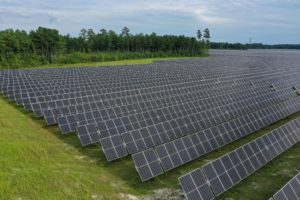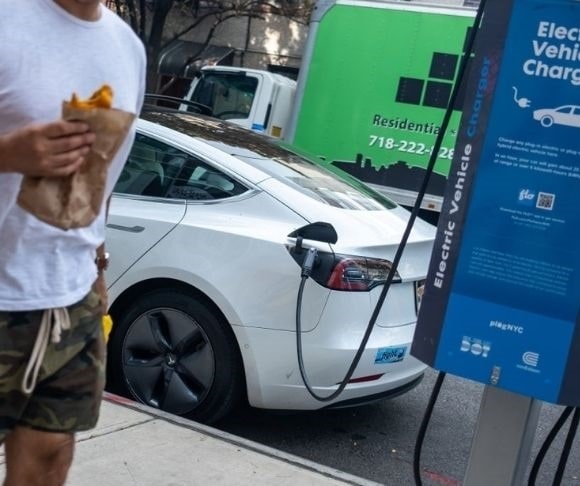Legendary economist Joseph Schumpeter espoused that the free market was the greatest democratic institution the world has ever known. Unfortunately, ESG (Environmental, Social, and Governance) investing was born 60 years after his death. As defined by the Corporate Finance Institute, ESG “is best characterized as a framework that helps stakeholders understand how an organization is managing risks and opportunities related to environmental, social, and governance criteria.” It is no secret that modern-day Corporate America has graduated with honors from the School of Wokeology. Boardroom executives are trying to avoid a viral hashtag from being born and appease the very people who hate them – the non-binary, blue-haired residents of the Twitterverse who obsess over pronouns and drag queens – by installing backroom progressivism throughout the marketplace. Is it the latest threat to democracy?
ESG Investing Threatens Freedom?
 Oklahoma Gov. Kevin Stitt (R) recently signed a significant piece of anti-ESG legislation titled the Energy Discrimination Elimination Act of 2022. The bill’s purpose is to mandate the state to divest holdings in financial institutions that boycott the energy industry. The governor noted that ESG proponents are “attacking our way of life,” adding that “we’re not going to do business with people that don’t promote our assets.”
Oklahoma Gov. Kevin Stitt (R) recently signed a significant piece of anti-ESG legislation titled the Energy Discrimination Elimination Act of 2022. The bill’s purpose is to mandate the state to divest holdings in financial institutions that boycott the energy industry. The governor noted that ESG proponents are “attacking our way of life,” adding that “we’re not going to do business with people that don’t promote our assets.”
West Virginia has started a campaign to fight back against sustainable investing by refusing to park state funds in banks that sanction the energy sector. Because the Mountain State generates a lot of funds from the fossil fuel sector, it would not be smart for the government to enter into partnerships with businesses that reject the conventional energy industry.
In July, Texas Republican Comptroller Glenn Hegar unveiled a list of 348 investment funds and ten firms that cannot do business with the Lone Star State because they “boycott energy companies.” Hegar said in a statement: “The environmental, social and corporate governance (ESG) movement has produced an opaque and perverse system in which some financial companies no longer make decisions in the best interest of their shareholders or their clients, but instead use their financial clout to push a social and political agenda shrouded in secrecy.”
Liberty Nation recently reported that Florida had fired an opening salvo in the war against ESG’S “ideological agenda” by requiring state pension funds to prioritize beneficiaries’ financial interests instead of the political wish list of Davos. Florida State Rep. Paul Renner warned that ESG investing is a “significant threat to democracy.”
It is safe to say that more Republican-led jurisdictions will join this war on ESG in the coming months. But these efforts might be in vain, no matter how noble and just. The entire planet is embarking upon ESG, leaving behind a worldwide trail of tears and destitution for the globe’s most vulnerable.
Blame NGOs and Teenagers

(Photo by Alexi Rosenfeld/Getty Images)
Speaking in a recent interview with CNBC, famous American investor Kyle Bass warned that public policymakers are adopting policies pushed by non-governmental organizations (NGOs) and teenagers. He noted that the transition to alternative energy could not happen overnight, and a proper shift will require more crude oil and natural gas for a longer time span. Unfortunately, according to Bass, who launched the environment-focused Conservation Equity Management last year, the more governments and Wall Street push for ESG, the more pain the impecunious will feel.
“These transitions take 40 years, Joe. The move from coal to natural gas took 40 years. They take a very, very, very long time. We can’t just flip a switch,” Bass stated. “These policies that are ESG driven and morally driven that we should convert everything to alternative energy tomorrow are going to end up starving the poor children in the world and killing many of them.”
Sri Lanka is a perfect example of ESG bobby-soxers destroying a country. According to World Economics, Sri Lanka has enjoyed a near-perfect ESG rating. What did Colombo get out of it? Political unrest, an energy crisis, and food shortages. Last year, former President Gotabaya Rajapaksa became hypnotized by the ESG siren call, so he prohibited the use of chemical fertilizers and pesticides and announced plans to transform the nation’s agricultural industry to 100% organic. This, supporters noted, was essential because the South Asian nation depended too much on chemical fertilizers. The result? A collapse in harvests, impoverished farmers, and nationwide starvation.
“We are a tropical country full of rice paddies and banana plantations, but because of this stupid fertilizer ban, now we don’t even have enough food to feed ourselves,” Rajith Keerthi Tennakoon, 52, told the London Guardian in April. “We have had past economic crises, security crises but never in Sri Lanka’s history have we had a food crisis.”

(Photo by Drew Angerer/Getty Images)
The problem with ESG is not only the green-utopians attached to the campaign but also the social and governance components of the socially responsible fetish. Suffice it to say, when countries like Zimbabwe, Senegal, and Jordan make the list, it can be challenging to take ESG seriously. It is as if human rights abuses and government corruption take a backseat to adopt harmful green energy edicts that lead to widespread suffering so liberals can virtue-signal on social media cesspools. When economies crumble, totalitarianism rises from the ashes of despair.
The ESG Menace
ESG investing is the left’s latest grift. But what may be compelling about this latest scheme is that the peddlers might actually believe this is the panacea to everything that ails the planet. The urban Democrat-voting bourgeoisie can delude themselves into thinking they are helping Mother Nature by paving more bicycle paths or putting more bugs in our food. But the real-world consequences of reading World Economic Forum blog posts consist of advancing human depravity and eviscerating decency. All for what? Eminent comedian George Carlin probably summarized it best: “A clean place to live. Their own habitat. They’re worried that some day in the future they might be personally inconvenienced.”




